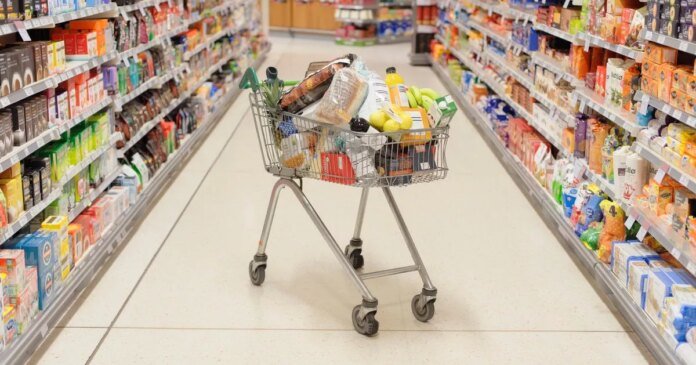Food prices have surged at their quickest rate in a year and a half, delivering a fresh blow to households already facing financial challenges. According to the British Retail Consortium (BRC)-NIQ Shop Price Monitor, food inflation has risen to 4.2% this month, up from 4% in July, marking the highest level since February 2024.
The latest data reveals that items like chocolate, butter, and eggs have experienced price hikes, with fresh food inflation spiking to 4.1% due to increasing dairy prices. In contrast, ambient food inflation has slowed to 4.2% year-on-year from 5.1% in the prior month. Overall shop price inflation has climbed to 0.9% in August, despite a 0.8% drop in non-food product prices.
The uptick in food prices follows the Bank of England’s statement earlier this month attributing the acceleration in food costs to the raise in employer National Insurance contributions in April. This change included an increase in the National Insurance rate for firms from 13.8% to 15% and a reduction in the earnings threshold for employer contributions from £9,100 annually to £5,000.
More than 60 retail leaders, including executives from major stores like Tesco, Sainsbury’s, and Boots, cautioned Chancellor Rachel Reeves last week about the potential adverse impact of further tax hikes in the upcoming Autumn Budget on improving living standards in the UK. These retail heads, in a joint effort with the BRC, predicted food and drink inflation could reach 6% later this year.
Helen Dickinson, the BRC’s chief executive, emphasized the strain on families facing rising living costs, particularly due to significant price hikes in essential items like butter and eggs driven by high demand, supply constraints, and increased labor expenses. She noted that global cocoa prices have also contributed to the increased cost of chocolate due to poor harvests.
Retailers are striving to minimize price increases for consumers, but the additional £7 billion in costs from last year’s budget changes, as acknowledged by the Bank of England, has posed challenges for the industry. Over 60 retail CEOs have urged the Chancellor to avoid imposing further tax burdens on the sector this autumn.
Mike Watkins, head of retailer and business insight at NIQ, highlighted various factors behind the price rises, including global supply costs, seasonal food inflation influenced by weather conditions, the conclusion of promotional activities tied to recent sports events, and a rise in operational expenses. As households return from summer vacations, many may need to review their budgets in response to escalating household bills.

